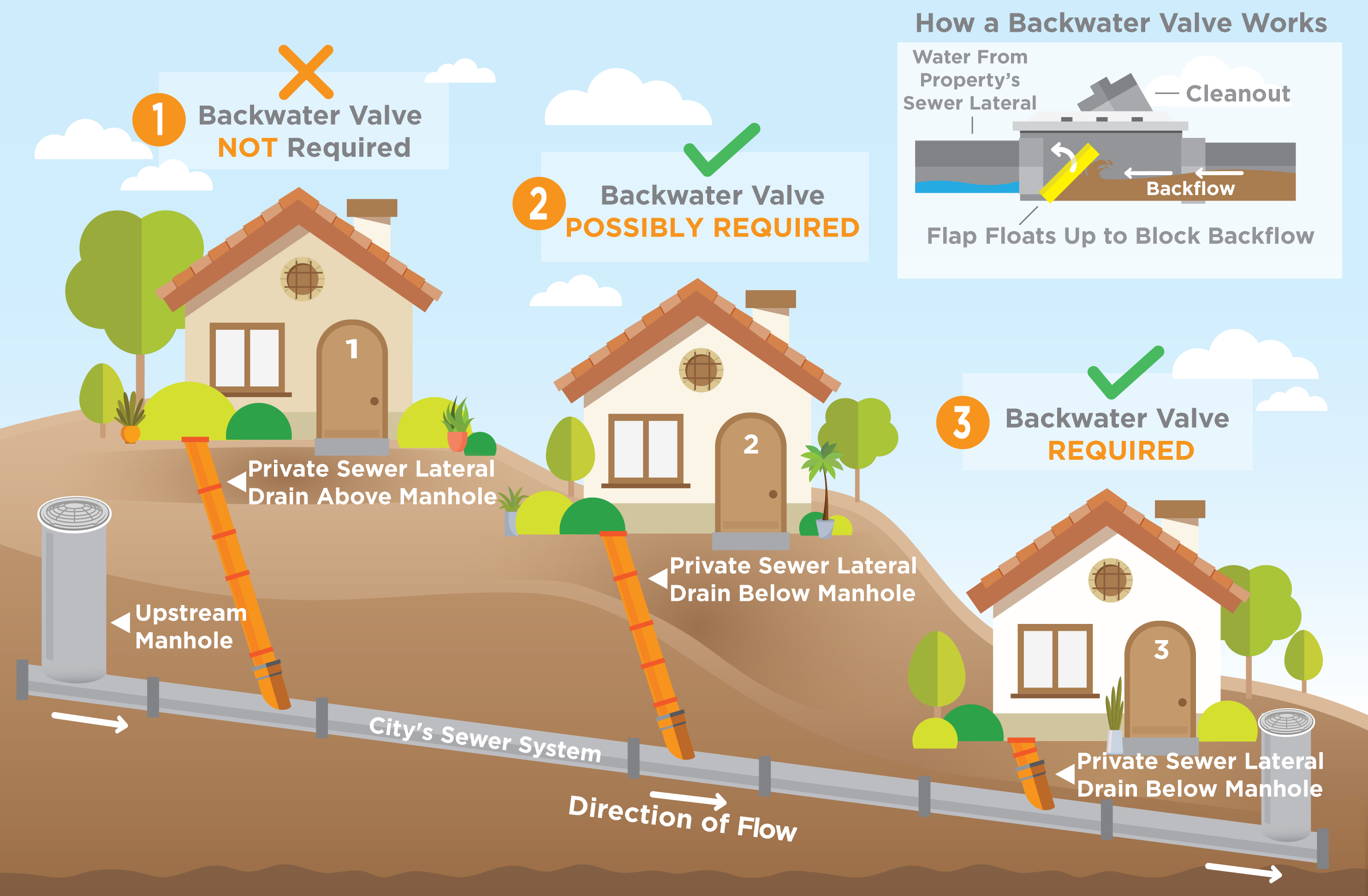Backwater Valves

Sewer backups are not only unpleasant and inconvenient, but can also result in costly damage. A backwater valve may prevent a sewer backup from occurring on your property. A backwater valve is a backflow prevention device that is used to prevent outbound wastewater from re-entering a property.
How do I know if I need a sewer backwater valve?
Properties that have plumbing fixtures located below the elevation of the next upstream maintenance hole cover are required to install and maintain an "approved" backwater valve.
Who is responsible for the installation and maintenance of backwater valves?
Property owners are responsible for the installation and maintenance of backwater valves. Backwater valves that meet the requirements of Section 710.1 of the California Plumbing code are required when an addition, alteration, or repair is made to a plumbing system or fixture in which a permit is required or when the work value exceeds $1000. If you think you might need a backwater valve, or if you have questions about locating or checking the device, the City encourages you to contact a licensed plumber who can evaluate your situation and, if necessary, install a backwater valve.
Do I need a permit for a backwater valve?
Yes, a City plumbing permit is required for the installation of a backwater valve. For permit information, contact the Building and Safety Division at (805) 564-5485.
How often should I check the backwater valve?
It is recommended that you check and maintain the valve at least every 6 months. If you have a history of sewer blockages, you should check more often. For any maintenance questions or issues, please contact a licensed plumber.
Learn how to properly maintain your Backwater Valve in our video below.
Helpful Tips to Prevent Sewer Backups
- Regular maintenance of your lateral line will prevent obstructed flow. Roots from trees, large shrubs, and plants are attracted to water. So if your lateral line is cracked, roots will gravitate towards the water source, enter the line, and eventually interfere with the flow.
- Only flush the 3 Ps (Paper, Pee, and Poop). Flushing of other items can cause backups because private property's lateral line may be as small as three inches in diameter.
- Do not dispose of fats, oil, or grease (FOG) into the City sewer. Commercial operations such as restaurants are required to have a grease trap. Industrial wastewater generators are required to install a pretreatment facility to process waste prior to disposal. Learn how to dispose of these items properly on our FOG webpage.
If you are not the property owner and want to protect against potential uninsurable damage to your personal property, share these maintenance and preventive tips with your landlord, manager, or the property owner.
Questions about backwater valves? Please call (805) 568-1080 or schedule an appointment with our staff.
